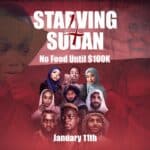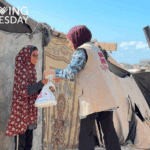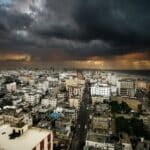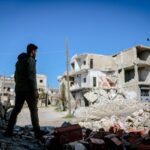In Somalia, poverty, armed conflict, political instability and natural disasters continue to drive humanitarian needs. Diminishing water sources caused livestock to perish and crops to wither and die, further deteriorating cases of malnutrition, dehydration and starvation. The number of people in need of humanitarian assistance reached 5 million, which is more than 40% of the entire population. Over 1.1 million people are internally displaced, and Somalia remains one of the poorest and most food-deprived nations in the world.
 UMR launched a project to provide immediate assistance to drought-affected IDPs and host communities in and around Mogadishu and Luug District, Gedu region. The scheme enabled people to access food as they waited for additional humanitarian interventions. The project helped feed 3,000 beneficiaries. UMR used World Food Program’s (WFP) support to improve food security through the SCOPE approach. This project targeted the most vulnerable IDPs passing through or staying in the region. It also registered beneficiaries from the IDP camp as well vulnerable households. The targeted beneficiaries received family/household rations equivalent to the ones delivered by WFP and recommended by the Somalia Food Security Cluster. The quota included 25kgs of rice, 25kgs of sugar, 5 liters of cooking oil, 2kgs of tea leaves and 5kgs of powdered milk.
UMR launched a project to provide immediate assistance to drought-affected IDPs and host communities in and around Mogadishu and Luug District, Gedu region. The scheme enabled people to access food as they waited for additional humanitarian interventions. The project helped feed 3,000 beneficiaries. UMR used World Food Program’s (WFP) support to improve food security through the SCOPE approach. This project targeted the most vulnerable IDPs passing through or staying in the region. It also registered beneficiaries from the IDP camp as well vulnerable households. The targeted beneficiaries received family/household rations equivalent to the ones delivered by WFP and recommended by the Somalia Food Security Cluster. The quota included 25kgs of rice, 25kgs of sugar, 5 liters of cooking oil, 2kgs of tea leaves and 5kgs of powdered milk.








